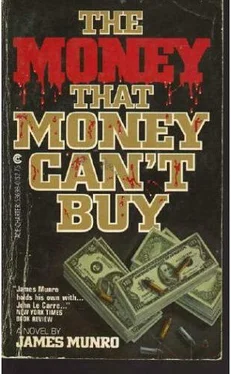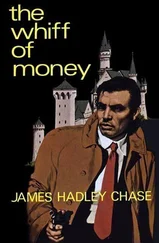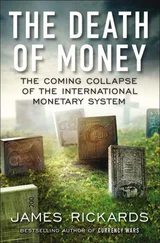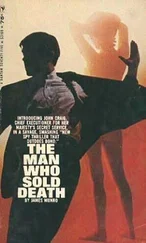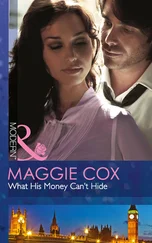James Munro - The Money That Money Can't Buy
Здесь есть возможность читать онлайн «James Munro - The Money That Money Can't Buy» весь текст электронной книги совершенно бесплатно (целиком полную версию без сокращений). В некоторых случаях можно слушать аудио, скачать через торрент в формате fb2 и присутствует краткое содержание. Жанр: Старинная литература, на английском языке. Описание произведения, (предисловие) а так же отзывы посетителей доступны на портале библиотеки ЛибКат.
- Название:The Money That Money Can't Buy
- Автор:
- Жанр:
- Год:неизвестен
- ISBN:нет данных
- Рейтинг книги:4 / 5. Голосов: 1
-
Избранное:Добавить в избранное
- Отзывы:
-
Ваша оценка:
- 80
- 1
- 2
- 3
- 4
- 5
The Money That Money Can't Buy: краткое содержание, описание и аннотация
Предлагаем к чтению аннотацию, описание, краткое содержание или предисловие (зависит от того, что написал сам автор книги «The Money That Money Can't Buy»). Если вы не нашли необходимую информацию о книге — напишите в комментариях, мы постараемся отыскать её.
Agent Craig is one hunk of a killing machine, smooth, professional, amoral, unquestioning. And the real drama comes after his masculinity has been almost severed. Will he turn on his manipulating department head Loomis? In the meantime he's successfully kidnapped a Russian agent and subsequently teamed up with other Russian agents to stop an anti-Soviet organization planning to flood the market with phoney money. But the slapdash action turns out to be equally counterfeit and the psychodrama Just so much spy schmaltz.
The Money That Money Can't Buy — читать онлайн бесплатно полную книгу (весь текст) целиком
Ниже представлен текст книги, разбитый по страницам. Система сохранения места последней прочитанной страницы, позволяет с удобством читать онлайн бесплатно книгу «The Money That Money Can't Buy», без необходимости каждый раз заново искать на чём Вы остановились. Поставьте закладку, и сможете в любой момент перейти на страницу, на которой закончили чтение.
Интервал:
Закладка:
"That is the British way," he said. "It works, I suppose."
"It works very well," said Boris. It was his official voice; Istvan was silent.
"Our controller is a woman," he said. "She is quite young and very beautiful. It would be foolish of you to desire her, Istvan."
Istvan said at once: "Extremely foolish."
There was a pause: they both seemed to be waiting for Craig to speak.
At last he said: "I should have been told this earlier."
Boris said: "Don't worry. She is extremely good. Like a man is good. She thinks like a man, works like a man. Only the body belongs to a woman. That is very useful. And very dangerous."
"Will she meet us at the airport?" Craig asked.
"No, no," said Boris. "That will all be arranged in time." He pressed the bell above him. "I think we should all drink cheap brandy and stop talking about women. . ."
* * *
So much about Tangier had changed, Craig thought. There was a modern airport now, and the road linking it to the city was fast and new. Now, too, the taxis were numerous, and the driver didn't try to sell you a woman as soon as you opened the door. The town looked cleaner, and more cared for: the lights in the street came on first time. The brothels had gone, and the shops where you could buy anything, from a fountain pen to an automobile, below duty-free price, below cost price sometimes, so that you came out wondering if the ring or the watch or the radio you had bought was counterfeit, or merely stolen . . . But the sea was still there, the confluence of the Mediterranean and the Atlantic, and the incredible view of it from the headland: the water in solid bars of blue and green, and behind it, softened by distance, the rocky masses of Gibraltar and the mainland of Spain. Craig thought briefly of George Allen, and Dovzhenko, who preferred to be known as Jean-Luc Calvet. Spain was a country he liked, and he'd been there often enough in the old days, but here in Tangier he was at home. He had no house any more, and no doubt tourists now used the little bar that had once belonged to the smugglers, but he felt still as if he had roots here, the stability of language and customs perfectly learned and understood. Many of the people he had known would be gone by now—particularly the Spaniards. When Spain had abandoned Spanish Morocco a lot of them had slipped back home across the water, but a lot of them would be left. And Arabs and Jews, and the Christians who were often so enchantingly vague about their nationality. If they saw him they would recognize him, but it didn't matter. The police couldn't touch him, didn't want to. After all, the arms he'd sold had all gone to the Algerians or the Moroccans themselves. Never to the French. That made him more of a local hero than a criminal. Nobody would mind if he brought over a couple of respectable business friends to look at the sights, though a few people might be disappointed to find that he was now respectable too.
The three of them dined in their hotel, a new one just off the Boulevard Pasteur, with a swimming pool and air-conditioned rooms, and an open patio that looked straight up at stars that seemed almost gentle in the black and tender sky. They ate well, and without preoccupation, and Craig sensed that the woman—their controller—was not in the hotel. Then they walked back to the Boulevard Pasteur, and sat outside a cafe, to watch the aimless meandering of a Mediterranean crowd that knows how to enjoy the cool of the evening by doing nothing but relaxing and gossiping at cafe tables.
That night, as every night in summer, the crowd was mostly foreigners, tourists with money who would stray inevitably into souvenir shops, cafes, and cabarets. But now and then there passed a man in a djibbah, or a veiled woman, shrouded from the bridge of her nose to her toes, walking behind her lord. And sometimes, Craig remembered, those toes were covered by shoes imported from Paris, and the scent on their bodies came from Cardin . . . He watched a donkey go by. An old countryman rode on it. Behind him walked his wife, bent double under a load of firewood. Between them they halted a line of American cars, and the police-
man on duty let them. After all, they were citizens too.
Boris said: "There is a great deal of inefficiency here." Craig agreed. "And a smell, also. Have you noticed it?"
"Drains?" Craig asked.
"No," said Boris. "It is a strange smell—thin and bitter. A lot of the people here seem to carry it about on their clothes."
Istvan giggled.
"That's kef," said Craig. "A kind of marijuana. A lot of people use it here instead of alcohol. Alcohol's not approved of in a Muslim country."
"A lot of people seem to be drinking it," said Boris.
"They like it," said Craig. "So just for tonight they pretend they're Christians."
Boris said: "This is crazy. And we should not be here."
"Why not?" Craig asked. "Suppose this man Brodski were to see you— and us?"
"Brodski hasn't left his villa since he got here," said Craig. "He's waiting for Simmons."
"You seem very well informed," said Boris.
"I didn't know about your controller being a woman," said Craig.
Then Boris sulked. If it had been a peace conference he would have walked out. Craig had never worked with an ally before and never wanted to again. He sighed and bought Boris a brandy. It was like a sweet for a naughty child.
Boris had almost finished his drink when Hornsey appeared. He wore a white lightweight suit and a panama hat, and when he sat down at the table next to theirs was at once besieged by bootblacks. He tried to repulse them in painstaking French and had no success at all. It was Craig who drove them off, in a machine-gun burst of Arabic. When they had gone he looked across at Craig.
"That was awfully kind of you," he said.
"Not at all," said Craig.
"You must let me buy you a drink."
"Some other time," Craig said. "We have an appointment."
"Ah," said Hornsey. "Well, thanks anyway."
He ordered mint tea, and when they left, merely nodded.
The three men strolled on up the Boulevard Pasteur to where a little formal garden looked across at Europe. Below them the Casbah was teaching tourists that every experience must be paid for. Just across the road was the Credit Labonne.
"You were indiscreet," said Boris. "You made that man curious about you."
"He looked so helpless," said Craig.
Boris began to lecture, and Craig thought about Hornsey. It had been nice to help him, to spare him embarrassment, and nice to know that they need not recognize each other. It had seemed also as if Boris and Istvan did not know him. It was difficult to be sure about these things, but Craig was prepared to bet on it at reasonable odds. He didn't want Hornsey to know Boris, but if he didn't, how had he arrived in Tangier so opportunely? Perhaps Simmons had told him to be there, before he had messed up his chances by killing Zelko. Or perhaps,
thought Craig, / told him myself about the raid on the bank, after he rescued me. The thought saddened him. He didn't want to have to cope with Hornsey.
Boris went on talking, and Istvan filled in time by staring at the bank. It will not be easy, he thought. The door is lit by streetlamps, and there are too many people. But stealing a million is never easy. He switched the problem off his mind, like a radio changing stations. After all, finding a way in was Craig's problem. No doubt he had it in hand. It was better to concentrate one's mind on what to do when one had taken the million. Boris, for example, might prove an obstacle. So might his controller. Istvan's secret fear was that they would kill him when the deal was concluded. On the other hand, another Siberian winter would have killed him anyway.
Boris continued to lecture as they walked down the steps to the Casbah. The place was packed with conducted parties, independent parties, guides official and unofficial, pushing their way into tiny streets where the shops that lined them were the size of cupboards, and one could buy yataghans, camel saddles, brass-bound muskets or silver-filagree coffeepots, eat kebabs on skewers, drink mint tea, and watch the haggling. The haggling, Craig remembered, was half the fun, even when the stuff was good. They came to a tiny square, dominated by a pink-washed building that had once been an attractive cube. Now it was a mess of domes, turrets, and minarets, from one of which an endless tape broadcasted Arab music through a loudspeaker. A wooden board nailed between two turrets had painted on it: "OASIS NITE CLUB. FLOOR SHOW. FOOD. DRINK."Istvan looked at it.
Читать дальшеИнтервал:
Закладка:
Похожие книги на «The Money That Money Can't Buy»
Представляем Вашему вниманию похожие книги на «The Money That Money Can't Buy» списком для выбора. Мы отобрали схожую по названию и смыслу литературу в надежде предоставить читателям больше вариантов отыскать новые, интересные, ещё непрочитанные произведения.
Обсуждение, отзывы о книге «The Money That Money Can't Buy» и просто собственные мнения читателей. Оставьте ваши комментарии, напишите, что Вы думаете о произведении, его смысле или главных героях. Укажите что конкретно понравилось, а что нет, и почему Вы так считаете.
